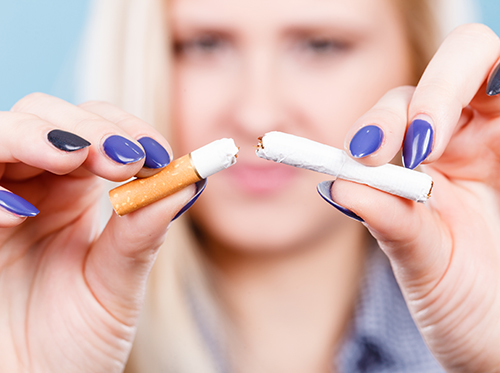January 8th, 2025

According to the Oral Cancer Foundation, this form of cancer kills roughly one person an hour, every 24 hours. This means that nearly 10,000 people will die this year from this type of cancer.
Often, the cancer is discovered late, which is the main reason the death rate is unfortunately so high. Dr. John Zarrella and Dr. Peter C. Rider and our team want you to know the precautionary steps you can take to avoid oral cancer.
Here are some of the most effective methods:
- Good oral hygiene is the first step in oral cancer prevention.
- Visit our Ashland office every six months for a dental exam.
- Quit smoking or using chewing tobacco, if you do.
- Limit alcohol consumption.
- Maintain a healthy, well-balanced diet.
- Consume cancer-fighting foods such as vegetables, berries, garlic, green tea, etc.
- Change how you prepare foods; baked, boiled, or steamed foods are healthier than grilled or fried.
- Exercise regularly to maintain a healthy immune system.
- Limit the amount of time you spend in the sun, and be sure to use sunscreen.
- Conduct an oral self-exam each week.
We know the thought of oral cancer can be frightening, so we hope the above advice can help patients catch it early or prevent it from ever happening. If you notice a negative change in your oral health, contact our Ashland location right away and schedule an appointment with Dr. John Zarrella and Dr. Peter C. Rider.
If you’re ever concerned or have questions about this common form of cancer, don’t hesitate to ask a member of our team.
December 25th, 2024

We all know that sleep apnea causes many a difficult night. Noisy snoring, gasping for breath, and waking up dozens of times a sleep cycle are the unhappy consequences of Obstructive Sleep Apnea (OSA). What you may not realize is that sleep apnea can make your days just as challenging.
Obstructive sleep apnea is caused by an obstructed airway. The throat muscles may relax as you sleep and make it impossible to inhale fully with each breath. Or you may have a physical condition such as a deviated septum, enlarged tonsils or excess throat tissue that blocks the free passage of air into your lungs. As a result, you stop breathing for a short time and often choke or gasp for breath. Your body responds by waking every time you need to start breathing properly again, and this can happen dozens of times each hour you are asleep. The result is that, while you may think you have slept through the night, you have never gotten the deep sleep your body needs to restore itself.
How can sleep deprivation affect our daytime hours? You might find yourself suffering from any of these problems:
- Constant drowsiness
- Falling asleep at work or while driving
- Headaches every morning
- Sore throats
- Dry mouth (which can lead to gum and dental problems)
- Memory and attention problems
- Moodiness or depression
- Decreased libido
As if these reasons weren’t cause enough to find a solution to your sleeping disorder, the longer term results of sleep apnea can be devastating. High blood pressure, heart disease, stroke, dangerous responses to medication or general anesthesia, a higher risk of accidents, and many other serious consequences have been linked to sleep apnea.
Sleep apnea doesn’t just ruin your night. If you suffer from any of the daytime problems listed above, please give our Ashland office and your doctor a call. If obstructive sleep apnea is the cause, Dr. John Zarrella and Dr. Peter C. Rider can work with you to find a solution that will improve your quality of life 24 hours a day.
December 18th, 2024

Molars are difficult to reach when brushing your teeth because they’re full of crevices, caves, and pits that can provide the perfect environment for decay. Sealants are the perfect fix for this.
Sealants are a plastic-like protective solution that bond to the edge of the tooth. The treatment protects you against cavities and could save you from complicated dental issues in the future.
The process for placing sealants is painless and quick. First, Dr. John Zarrella and Dr. Peter C. Rider will clean the tooth with a baking soda spray. An acid etch is applied in order to “roughen up” the surface of the tooth and re-mineralize the area. The area is dried with an alcohol-based liquid and the sealant is placed on the grooves of the tooth. A special light then hardens the liquid into a plastic-like material.
Although sealants can last several years, they need to be examined semi-annually to check for breakage. Any cracks or breaks in your sealant can put your tooth at high risk for decay, and repair of sealants is a quick and painless task.
Children often receive sealants, but people of all ages can benefit from them. Adults who have especially deep canyons on their teeth are good candidates for sealants.
An investment in dental sealants can prevent tooth decay and complicated dental problems later on. It’s a no brainer! Call our Ashland office today to speak with us about getting sealants on your teeth.
December 11th, 2024

You already know that taking care of your teeth can help prevent tooth decay and the need for extensive work such as root canals or implants, which can be inconvenient and expensive. But the benefits of good teeth can go far beyond having an attractive smile and being able to crunch carrots and chew meat.
The American Dental Association explains that healthy teeth are linked to a lower risk for heart disease and diabetes. Furthermore, recent research published in the British Journal of Sports Medicine states that good teeth can improve athletic performance among elite athletes.
Researchers examined the oral health of nearly 300 athletes in 25 sports at the 2012 Olympics in London. They looked for conditions such as dental caries, gingivitis, dental erosion, and periodontal disease, and asked about recent visits to a dentist.
Study investigators also asked athletes whether their oral health interfered with quality of life or athletic training and performance. The study concluded that poor oral health and fewer dental visits led to interference with preparation for competition.
This can happen for a few reasons. Tooth pain can disrupt sleep, which leads to slower reaction times. Oral health conditions can indicate chronic inflammation in the body, which means suboptimal performances on an elite level. Tooth pain can interfere with focus during training and competition.
Unfortunately, merely taking good care of your teeth won’t turn you into an Olympic gold medalist. However, the benefits can still be worthwhile. Even if healthy teeth provide little if any detectable gain in your athletic abilities, the potential benefits of maintaining a healthy mouth clearly go far beyond an attractive smile.
Practicing good oral hygiene and seeing Dr. John Zarrella and Dr. Peter C. Rider regularly can promote your physical health, and maybe – just maybe – you will start to achieve an advantage over your weekend athletic opponents.








